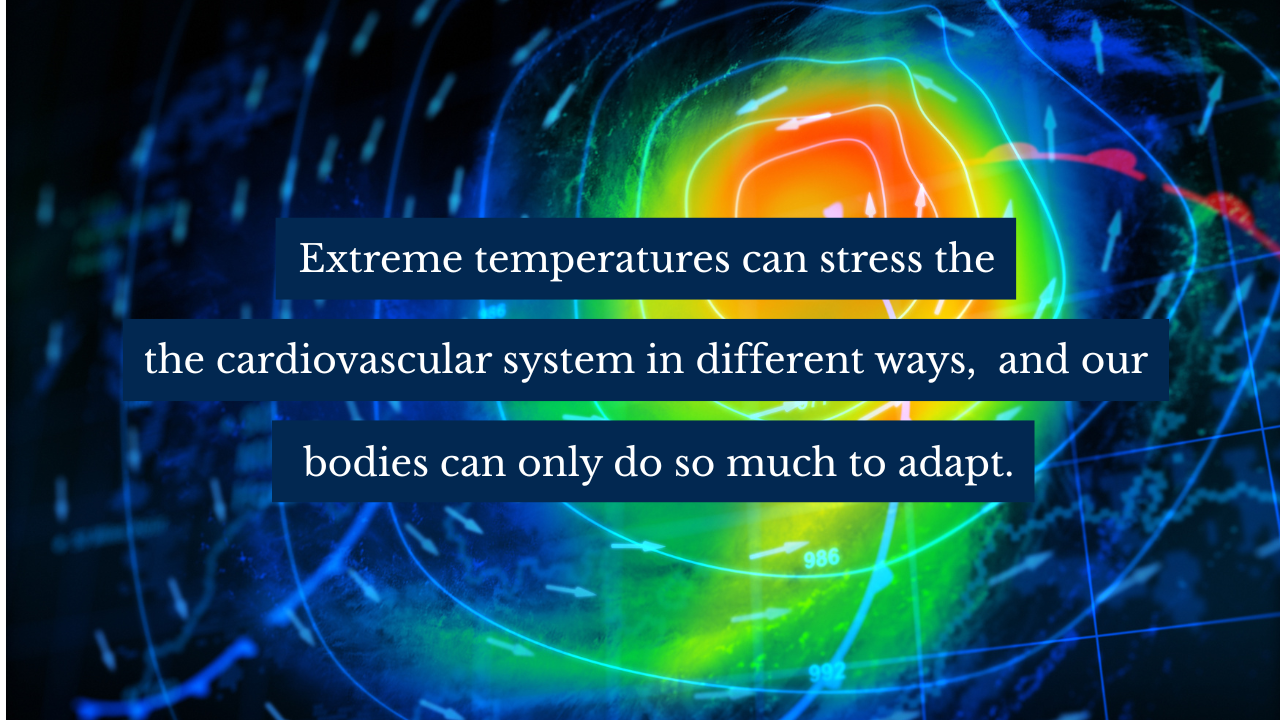
When the Seasons Shift
How Even Subtle Climate Changes May Be Nudging Your Heart Health
Quick Summary
- Even modest seasonal temperature shifts—colder winters or hotter summers than normal—can increase the risk of heart disease and stroke, especially in adults under 65.
- This new research reveals how climate variability isn’t just about weather—it’s stressing our cardiovascular systems in ways we’re only beginning to understand.
March 14-16, 2025: NOAA satellites closely monitored a powerful Spring storm system that tore through the central and eastern United States, unleashing a devastating mix of severe thunderstorms and tornadoes, destructive winds, dust storms, and wildfires in its wake.
"If winter comes, can spring be far behind?" Shelley wrote, capturing nature’s rhythms in verse. But today, those rhythms are shifting. As climate unpredictability becomes the new norm, researchers are finding that even subtle temperature changes may be doing more than disrupting our seasons—they may be quietly influencing our heart health.
How can weather impact heart health? Cold weather can raise blood pressure and trigger inflammatory responses in the body. It may also cause blood to become more prone to clotting, which can increase the risk of cardiovascular problems. And since cold air can also strain your respiratory system, that can put added pressure on your heart as well.
On the flip side, hot weather brings its own set of challenges. High temperatures can reduce blood volume and make blood thicker, which forces the heart to work harder to keep things moving. Your body tries to adapt to the heat through a process called acclimatization, which helps reduce the strain. But here’s the catch: You must be regularly exposed to the heat for acclimatization to work, and it fades over time if you’re not. Plus, in especially hot and humid environments, even a well-acclimatized body might not be able to cool itself down effectively.
In short, extreme temperatures — whether hot or cold — can stress the cardiovascular system in different ways, and our bodies can only do so much to adapt. And a recent study from researchers at UC Davis’s COEH sheds a bit more light on this topic.
In a large, long-term study published in Environmental Health Perspectives, our research group examined whether seasonal temperature deviations — think colder-than-usual winters or hotter-than-average summers — were linked to cardiovascular disease (CVD) incidence across three large-scale nationwide cohort studies: the Nurses’ Health Study, Nurses’ Health Study II, and the Health Professionals Follow-up Study.
Previous studies have suggested that short term temperatures from day-to-day are linked to higher CVD risk; however, no study had examined whether temperature anomalies from season-to-season can impact heart health.
To investigate this question, we followed over 276,000 participants across the US between 1986 and 2018. Using participants’ geocoded addresses linked to fine-scale weather data derived from weather stations across the country, we compared each season’s temperature to a rolling 5-year average for the same address location.
Think of it as measuring not just how hot or cold it was, but how unusual that season’s temperature was compared to the recent norm. Using questionnaire and medical record data, we then followed up to see whether participants were more or less likely to have a heart attack or stroke on a particularly warm or cold season, compared to the average.
Both Cold and Heat Raise Heart Risks—But Age Matters
Our research showed colder-than-average winters were associated with a modest but consistent increase in cardiovascular risk, particularly in adults under 65 years, where a 2.7°C decrease compared to the seasonal norm was associated with a 9 percent increase in CVD incidence.
While warmer-than-usual summers were not associated with higher CVD rates overall, among participants aged younger than 65, there was a clear uptick in stroke risk: a 6 perent increase in stroke incidence for every 1.3°C rise above the seasonal norm.
As the saying goes: Everybody talks about the weather, but nobody does anything about it. Why should we care?
These aren’t dramatic, headline-grabbing temperature swings. They’re the kinds of fluctuations we barely notice—yet our cardiovascular systems might. Cold weather can cause blood vessels to constrict and blood pressure to rise; heat can put strain the heart by dehydrating the body and increasing cardiac workload. Older adults, with reduced thermoregulation and existing comorbidities, may be especially vulnerable.
As climate change fuels more erratic seasonal patterns, with recent heat waves across the United States and Europe, these findings raise critical public health questions:
- How do we protect vulnerable populations during “not-quite-extreme” weather?
- Can early-warning systems or funding community infrastructure, such as tree plantings to cool urban areas, help buffer these risks?
This study reframes the climate conversation—reminding us that the changing seasons aren’t just poetic metaphors, but measurable physiological stressors. And our hearts may already be feeling the effects.
Read the Research
Klompmaker JO, Laden F, Dominici F, et al. Seasonal average temperature differences and CVD incidence: results from the US-based Nurses’ Health study, Nurses’ Health Study II, and the Health Professional Follow-up study. Environmental Health Perspectives. Published online March 31, 2025. doi:https://doi.org/10.1289/ehp14677
Peter James, ScD is the Director of the UC Davis Center for Occupational and Environmental Health.

